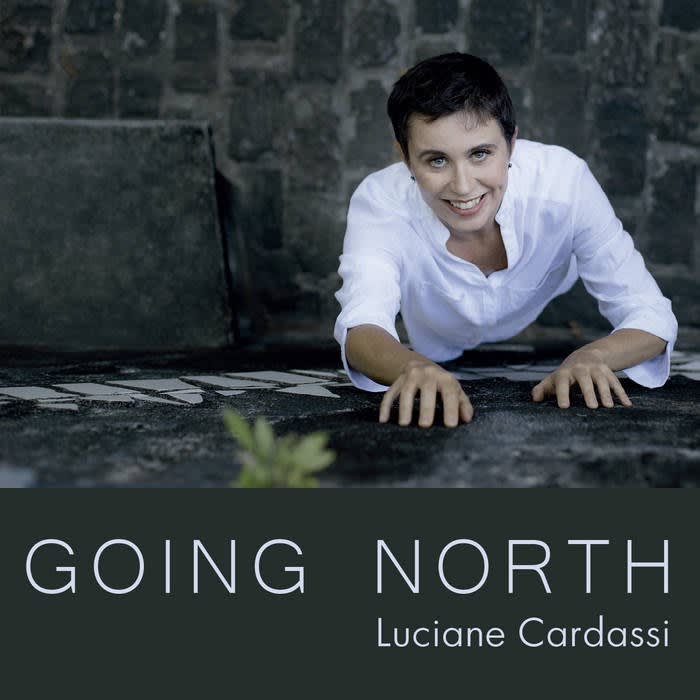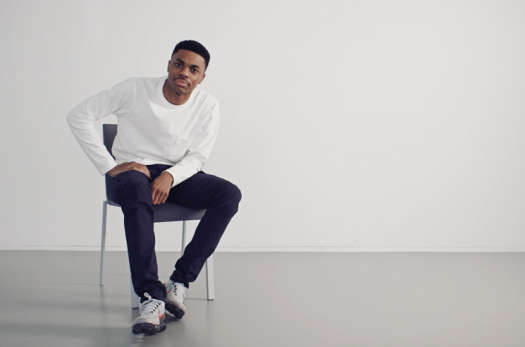Brazilian-Canadian pianist and artist Luciane Cardassi has been actively pursuing her creative vision within the contemporary classical world for 20 years. Her sense of versatility and adventure leads her to explore innovative works within the musical realm, as well as to wholeheartedly embrace collaborative experiments that span modes and media. She champions new music from both her native Brazil and from Canada, and this curatorial drive is reflected in Going North.
Cardassi has selected eight pieces, composed by artists from Brazil and Canada, that infuse her dynamic playing with electronics and her own voice. The performances are presented as individual microcosms that encapsulate unique aspects of her experience. Having had a personal connection with all of the composers at some point in her career, Cardassi's selections feel incredibly personal and are furnished with emotional weight.
Of course, Cardassi knows her way around the piano. She possesses a keen understanding of the many vocabularies that the instrument offers, especially when extended techniques are employed. The vocal elements, the electronics and pre-recorded passages and all equally effective; together, the components coalesce into a whole – if one aspect were missing, there would be a void left unfilled.
This sense of completeness becomes apparent immediately with "AhojAhoj," composed by Terri Hron. Cardassi's raw piano manipulations are augmented by the voices of the composer's relatives— recordings of her parents communicating with relatives located in Soviet-controlled Czechoslovakia. There is a sense of temporal dislocation in the way Hron incorporates sounds from the cassette deck used to make and play back these recordings that were sourced from decades past, yet Cardassi's piano is locked in synchronicity with the electro-acoustic sounds, rounding off the narrative.
Going North concludes with Cardassi performing a piece written by late composer Fernando Mattos, to whom she dedicated the album. Mattos was a contemporary of Cardassi in Brazil, a close friend, and her first collaboraor. On "The Boat Sings," the pianist weaves a guitar improvisation performed by the composer himself into her own piano playing. The resulting piece is incredibly moving, as Cardassi engages in a posthumous duet with someone she respects and holds dear.
(Redshift)Cardassi has selected eight pieces, composed by artists from Brazil and Canada, that infuse her dynamic playing with electronics and her own voice. The performances are presented as individual microcosms that encapsulate unique aspects of her experience. Having had a personal connection with all of the composers at some point in her career, Cardassi's selections feel incredibly personal and are furnished with emotional weight.
Of course, Cardassi knows her way around the piano. She possesses a keen understanding of the many vocabularies that the instrument offers, especially when extended techniques are employed. The vocal elements, the electronics and pre-recorded passages and all equally effective; together, the components coalesce into a whole – if one aspect were missing, there would be a void left unfilled.
This sense of completeness becomes apparent immediately with "AhojAhoj," composed by Terri Hron. Cardassi's raw piano manipulations are augmented by the voices of the composer's relatives— recordings of her parents communicating with relatives located in Soviet-controlled Czechoslovakia. There is a sense of temporal dislocation in the way Hron incorporates sounds from the cassette deck used to make and play back these recordings that were sourced from decades past, yet Cardassi's piano is locked in synchronicity with the electro-acoustic sounds, rounding off the narrative.
Going North concludes with Cardassi performing a piece written by late composer Fernando Mattos, to whom she dedicated the album. Mattos was a contemporary of Cardassi in Brazil, a close friend, and her first collaboraor. On "The Boat Sings," the pianist weaves a guitar improvisation performed by the composer himself into her own piano playing. The resulting piece is incredibly moving, as Cardassi engages in a posthumous duet with someone she respects and holds dear.




